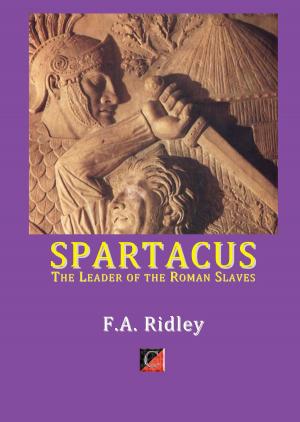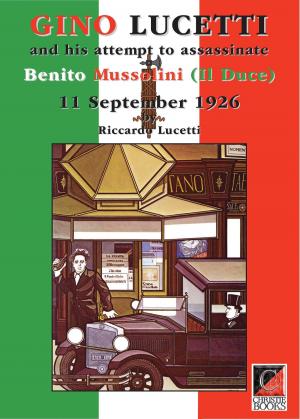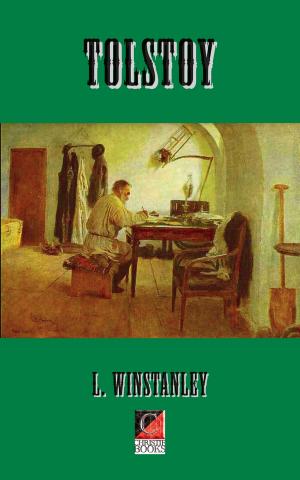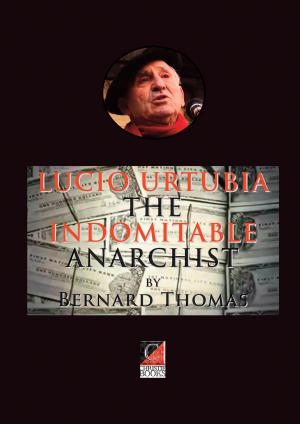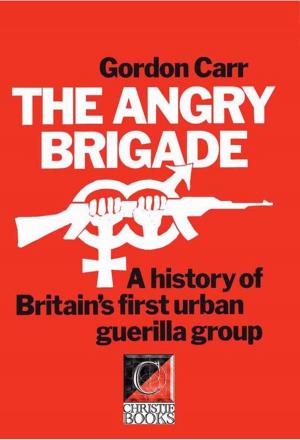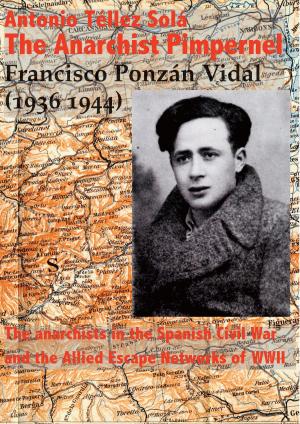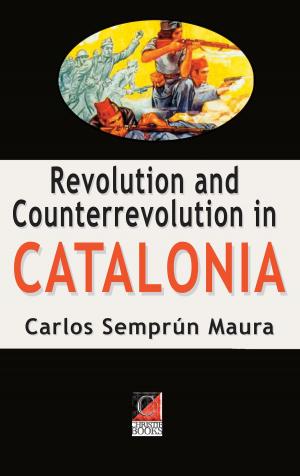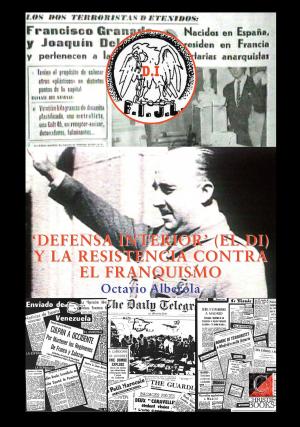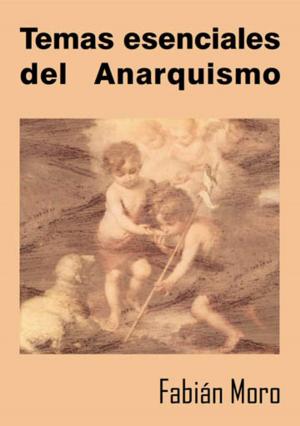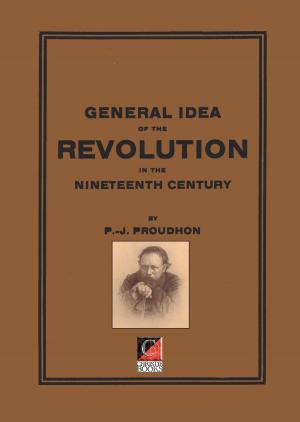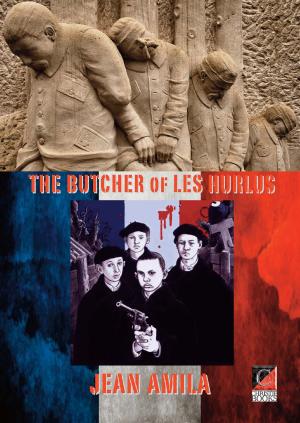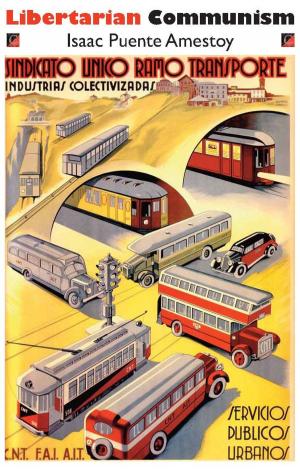| Author: | Francisco Ferrer i Guardia | ISBN: | 1230000273641 |
| Publisher: | ChristieBooks | Publication: | October 12, 2014 |
| Imprint: | ChristieBooks | Language: | English |
| Author: | Francisco Ferrer i Guardia |
| ISBN: | 1230000273641 |
| Publisher: | ChristieBooks |
| Publication: | October 12, 2014 |
| Imprint: | ChristieBooks |
| Language: | English |
Here is the full story of the Modern School told in transparently simple language. Here is the whole man, with all his ideals, aims, and resentments. It shows, as we well knew, and could have proved with overwhelming force at his trial had we been permitted, that he was absolutely opposed to violence ever since, in his youth, he had taken part in an abortive revolution. It tells how he came to distrust violence and those who used it; how he concluded that the moral and intellectual training of children was to be the sole work of his career; how, when he obtained the funds, he turned completely from politics, and devoted himself to educating children in knowledge of science and in sentiments of peace and brotherhood.
It tells also, with the same transparent plainness, why his noble-minded work incurred such violent enmity. He naively boasts that the education in the Modern School was free from dogmas. It was not, and cannot be in any school, free from dogmas, for dogma means “teaching,” and he gave teaching of a very definite character. Mr. [Hilaire] Belloc's indictment of his schools is, like Mr. Belloc's indictment of his character and guilt, evidently based on complete ignorance of the facts and a very extensive knowledge of the recklessly mendacious literature of his opponents. Even Mr. Archer's account of his school is grossly misleading. The Modern School was “avowedly a nursery of rebellious citizens” only in the same sense as is Socialist Sunday-school in England or Germany; and the Spanish Government has never claimed, and could not claim, for a moment the right to close it, except in so far as it falsely charged the founder with crime and confiscated his property.
Ferrer’s school was thoroughly rationalistic, and this embittered the clergy — for his system was spreading rapidly through Spain — without in the least infringing Spanish law. Further, Ferrer's school explicitly taught children that militarism was a crime, that the unequal distribution of wealth was a thing to be abhorred, that the capitalist system was bad for the workers, and that political government is an evil. He had a perfect right under Spanish law to found a school to teach his ideas; as any man has under English or German law. The prohibited and damnable thing would be even to hint to children that, when they grew up, they might look forward to altering the industrial and political system by violence. This Ferrer not only did not teach, but also strenuously opposed. We have overwhelming proof of this at every step of his later career. But he was a child of the workers, and he had a passionate and noble resentment of the ignorance, poverty, and squalor of the lives of so large a proportion of the workers. He was also an anarchist, in the sense of Tolstoy; he believed that liberty was essential to the development of man, and central government an evil. But, as rigorously as Tolstoy, he relied on persuasion and abhorred violence. I would call attention to Chapter VI of this book, in which he pleads for "the co-education of the rich and poor"; and there were children of middle-class parents, even of university professors, in his school. Most decidedly he preached no class-hatred or violence. I do not share his academic and innocent Anarchist ideal — which is far nearer to Conservatism than to Socialism — but I share to the full that intense and passionate longing for the uplifting and brightening of the poor, and for the destruction of superstition, which was the supreme ideal of his life and of his work. For that he was shot.
The manuscript of The Modern School was found among Ferrer’s papers after his judicial murder in1909 account. In 1906, Ferrer had been arrested on the charge of complicity in Mateo Morral’s attempt to assassinate the King (he was the librarian at the Modern School) and was held in jail for a year, with the most scandalous efforts made, in the court and the country, to secure a judicial murder; but it was a civil (or civilised) trial, and the charge was contemptuously rejected. Going to the Pyrenees in the early summer of 1908 to recuperate, Ferrer determined to write the simple story of his school, and it is this that is now offered to English readers.
In this work Ferrer depicts himself more truly and vividly than any friend of his has ever done. For my part (Joseph McCabe, translator), I had never met Ferrer, and never seen Spain; but I was acquainted with Spanish life and letters, and knew that there had been committed in the twentieth century one of those old-world crimes by which the children of darkness seek to arrest the advance of man. I interpreted Ferrer from his work, his letters, a few journalistic articles he had written — he had never published a book — and the impressions of his friends and pupils. In this book the man portrays himself, and describes his aims with a candour that all will appreciate. The less foolish of his enemies have ceased to assert that he organised or led the riot at Barcelona in 1909. It was, they say, the tendency, the subtle aim, of his work that made him responsible. It may be remembered that the Saturday Review and other journals published the most unblushingly mendacious letters, from anonymous correspondents, saying that they had seen posters on the walls of Ferrer’s schools inciting children to violence. As the very zealous police did not at the trial even mention Ferrer's schools, or the textbooks used in them, these lies need no further exposure. But many persist in thinking, since there is now nothing further to think to the disadvantage of Ferrer, that his schools were really hotbeds of rebellion and were very naturally suppressed.
Here is the full story of the Modern School told in transparently simple language. Here is the whole man, with all his ideals, aims, and resentments. It shows, as we well knew, and could have proved with overwhelming force at his trial had we been permitted, that he was absolutely opposed to violence ever since, in his youth, he had taken part in an abortive revolution. It tells how he came to distrust violence and those who used it; how he concluded that the moral and intellectual training of children was to be the sole work of his career; how, when he obtained the funds, he turned completely from politics, and devoted himself to educating children in knowledge of science and in sentiments of peace and brotherhood.
It tells also, with the same transparent plainness, why his noble-minded work incurred such violent enmity. He naively boasts that the education in the Modern School was free from dogmas. It was not, and cannot be in any school, free from dogmas, for dogma means “teaching,” and he gave teaching of a very definite character. Mr. [Hilaire] Belloc's indictment of his schools is, like Mr. Belloc's indictment of his character and guilt, evidently based on complete ignorance of the facts and a very extensive knowledge of the recklessly mendacious literature of his opponents. Even Mr. Archer's account of his school is grossly misleading. The Modern School was “avowedly a nursery of rebellious citizens” only in the same sense as is Socialist Sunday-school in England or Germany; and the Spanish Government has never claimed, and could not claim, for a moment the right to close it, except in so far as it falsely charged the founder with crime and confiscated his property.
Ferrer’s school was thoroughly rationalistic, and this embittered the clergy — for his system was spreading rapidly through Spain — without in the least infringing Spanish law. Further, Ferrer's school explicitly taught children that militarism was a crime, that the unequal distribution of wealth was a thing to be abhorred, that the capitalist system was bad for the workers, and that political government is an evil. He had a perfect right under Spanish law to found a school to teach his ideas; as any man has under English or German law. The prohibited and damnable thing would be even to hint to children that, when they grew up, they might look forward to altering the industrial and political system by violence. This Ferrer not only did not teach, but also strenuously opposed. We have overwhelming proof of this at every step of his later career. But he was a child of the workers, and he had a passionate and noble resentment of the ignorance, poverty, and squalor of the lives of so large a proportion of the workers. He was also an anarchist, in the sense of Tolstoy; he believed that liberty was essential to the development of man, and central government an evil. But, as rigorously as Tolstoy, he relied on persuasion and abhorred violence. I would call attention to Chapter VI of this book, in which he pleads for "the co-education of the rich and poor"; and there were children of middle-class parents, even of university professors, in his school. Most decidedly he preached no class-hatred or violence. I do not share his academic and innocent Anarchist ideal — which is far nearer to Conservatism than to Socialism — but I share to the full that intense and passionate longing for the uplifting and brightening of the poor, and for the destruction of superstition, which was the supreme ideal of his life and of his work. For that he was shot.
The manuscript of The Modern School was found among Ferrer’s papers after his judicial murder in1909 account. In 1906, Ferrer had been arrested on the charge of complicity in Mateo Morral’s attempt to assassinate the King (he was the librarian at the Modern School) and was held in jail for a year, with the most scandalous efforts made, in the court and the country, to secure a judicial murder; but it was a civil (or civilised) trial, and the charge was contemptuously rejected. Going to the Pyrenees in the early summer of 1908 to recuperate, Ferrer determined to write the simple story of his school, and it is this that is now offered to English readers.
In this work Ferrer depicts himself more truly and vividly than any friend of his has ever done. For my part (Joseph McCabe, translator), I had never met Ferrer, and never seen Spain; but I was acquainted with Spanish life and letters, and knew that there had been committed in the twentieth century one of those old-world crimes by which the children of darkness seek to arrest the advance of man. I interpreted Ferrer from his work, his letters, a few journalistic articles he had written — he had never published a book — and the impressions of his friends and pupils. In this book the man portrays himself, and describes his aims with a candour that all will appreciate. The less foolish of his enemies have ceased to assert that he organised or led the riot at Barcelona in 1909. It was, they say, the tendency, the subtle aim, of his work that made him responsible. It may be remembered that the Saturday Review and other journals published the most unblushingly mendacious letters, from anonymous correspondents, saying that they had seen posters on the walls of Ferrer’s schools inciting children to violence. As the very zealous police did not at the trial even mention Ferrer's schools, or the textbooks used in them, these lies need no further exposure. But many persist in thinking, since there is now nothing further to think to the disadvantage of Ferrer, that his schools were really hotbeds of rebellion and were very naturally suppressed.

